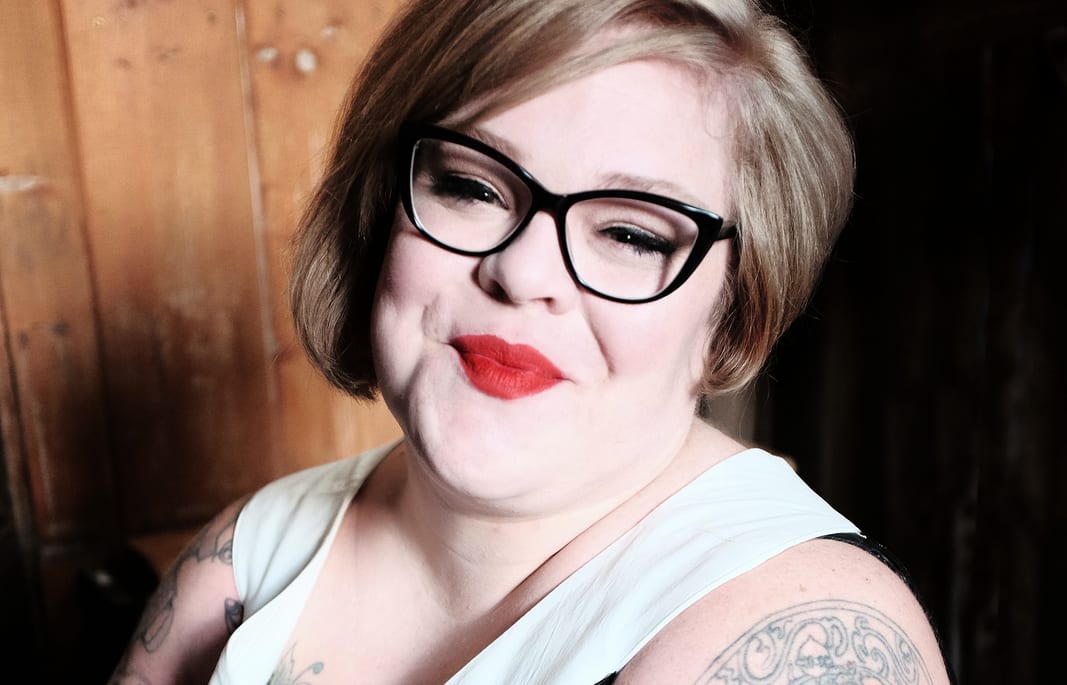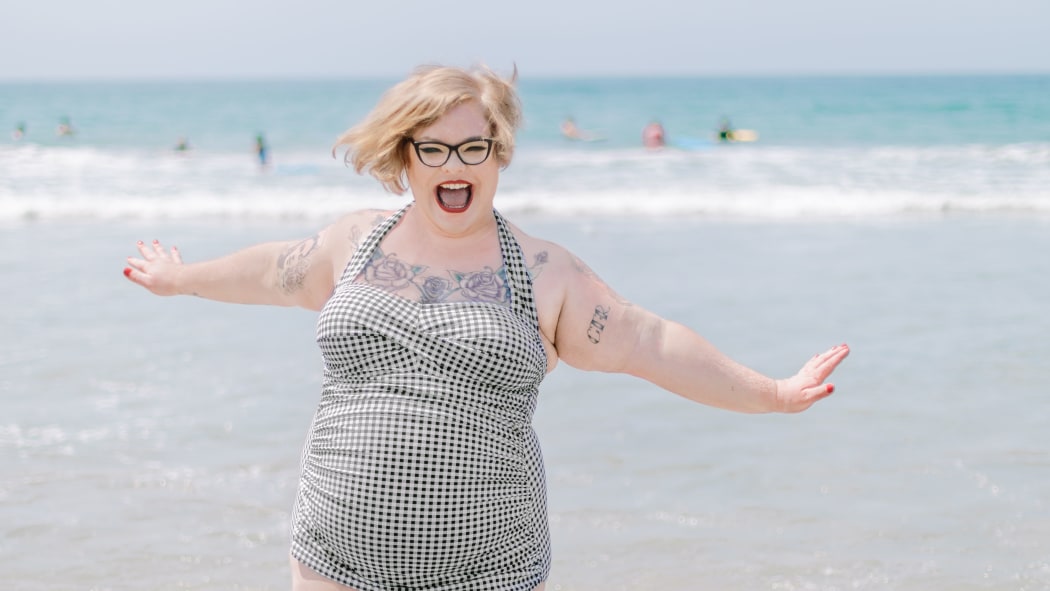Dieting doesn't work, and loving your body is an unattainable goal for most people - so it's better to simply accept it, says body liberation activist, speaker and author Jes Baker.

Photo: Jes Baker
Baker blogs about self-acceptance and body image at The Militant Baker and has written two books: Things No One Will Tell Fat Girls, and the memoir Landwhale.
Dieting, Baker warns, simply does not work.
"Really if people want a balanced relationship with food, restriction is the opposite of that ... we have scientifically proven restriction only causes this desperate need for more of what we’re restricting.
"It really destroys our relationship with food, our body, our brain and our social life."
It's an industry that preys on low self-esteem. Baker says she lived with self-hate for a long time.
"I had really become okay with the fact that I was going to hate myself for the rest of my life, like that was an acceptable way of living. I didn’t know anything else, everyone I knew lived that way so it seemed very normal.
"That kind of comes down to the fact that we turn our self-hatred and we kind of spin it in diet culture into inspiration - you know, 'if you don’t hate yourself you’re not working hard enough'."
She says it was about seven years ago that she found a lifestyle blog which changed her whole worldview.
"She was unapologetic and fat and happy - and that was honestly I think the first time I had ever seen that - not the first time I had seen a fat person or a fat person living their life but the first time I had ever seen someone who was truly happy just as they were and it changed everything for me.
"I had this realisation that maybe I don’t have to hate myself for the rest of my life."
"You don’t know how much that’s robbing you of until you step out of it. It took my self-esteem growing up, I grew up feeling like I was never enough … so I missed out on a lot of opportunities growing up and just feeling safe and secure.
"It becomes this cycle of trying and failing and shaming and guilt and self-hatred… so it’s addicting when we have people hating themselves and trying to reach this unattainable goal but it’s also so self-destructive and I think it’s important for people to know.
"Dieting and diet culture and this quest for the perfect body robbed me of relationships, I didn’t feel like I was worthy, I found myself in abusive relationships that traumatised me even more because I thought that was all I deserved.
"It physically destroyed my body in ways that are quite amazing to me. I have something called PCOS - polycystic ovary syndrome - and there’s a lot of things inside of PCOS that if you are on a diet ... actually, it’s the antithesis of a solution to kind of balance your body out."

Jes Baker Photo: Jessy Parr
Baker says accepting her body has been an ongoing struggle.
"I didn’t change overnight. In fact, I have been doing this work around body image, around empowerment, around body liberation, I have done years of research and read - a lot - and I still struggle.
"It’s an umbrella that encompasses your entire life and the freedom of just removing that, it’s intoxicating at first and then you realise … I like to think of it as a recovery journey. I’ve worked in mental health for a long time and we talk about recovery journeys there very openly.
"It is not instant at all and it would be very odd if it was because we … have internalised a message of ‘your body is never enough unless it looks like this’
Even the people who look like they are ideal-bodied have other parts of themselves or parts of their body that they feel is not enough, that’s why the diet industry makes so much money."
The idea that body liberation is about positivity and loving your body is deceptive, she says.
"We’re drawn to it because it’s this, like ‘love yourself’ and that feels really good because it’s the opposite of 'hate yourself' which is what we’ve been taught.
"We want within that space to become perfect at loving ourselves and that to me feels unattainable ... and then we feel like a failure and feel like we’re not doing good enough and then again exist in that same space of self-loathing.
"We become obsessed with loving our body and we create steps and a checklist and neither of those work ... you kind of have to learn to trust yourself and be okay with not knowing, and I think that’s the hardest part."
Baker says the goal should be a kind of acceptance.
"Here in the US, only five percent of cis-gender women are born naturally with a body that we see in the media as ideal.
"Obviously, simple math, 95 percent are not naturally born with that body and will never have that body that we push them and blame them and shame them and guilt them into trying to have.
"We’re born diverse, our history and childhood make our bodies even more diverse, it’s genetics, it’s culture, it’s history, it’s trauma, It’s sometimes just the way we’re born - and so it’s really important to acknowledge that bodies do not and never will look the same."
The way the dieting industry and diet culture is treated as a health issue of paramount importance shows how broken the US system in particular is, Baker says.
"The US is incredibly backwards in the way that we handle size, the fact that we still use BMI is just amazing to me. We have designated obesity as a disease so that we can bill for it.
"We have been telling medical professionals to treat weight first and what this does - and research has shown - is that because it trumps everything else we are not looking at people as a whole so other things are going by the wayside and people are dealing with illnesses and sicknesses that are never addressed.
Focusing on mental health first is the way forward, Baker says.
"I think that it’s very interesting that when we talk about health we are only talking about physical health and the fact that we are leaving out mental health and emotional health is very telling of how little we actually care about health.
"What we’ve also found is that if we want to become physically healthy, we actually have to start working with our mental health first. We have to stop the shame, the guilt, the restriction, all of these very limiting and harmful actions mentally in order to find a way to balance our life and also our physical health.
"Until we look at people as a whole we’re not going to see true wellness."

